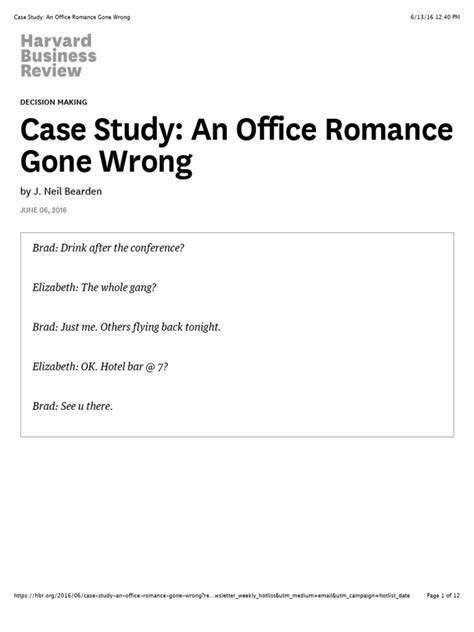
Women may be unknowingly engaging in behaviors that undermine their romantic relationships, according to recent insights from relationship experts who identified common, yet often unintentional, habits that can lead to conflict and dissatisfaction. These behaviors, ranging from excessive criticism to neglecting personal well-being, contribute to a dynamic where partners feel unsupported and misunderstood, ultimately jeopardizing the relationship’s stability.
Relationship experts highlight several common habits women may unintentionally exhibit that can damage their romantic relationships. These behaviors, often subtle and stemming from various factors such as stress or unmet expectations, can create a negative dynamic that erodes the foundation of a partnership. Understanding these patterns is the first step toward fostering healthier and more fulfilling relationships.
One of the most frequently cited issues is excessive criticism. While constructive feedback is essential for growth, a constant barrage of negativity can be detrimental. “No one wants to feel like they are constantly being evaluated or judged,” explains Dr. Sarah Thompson, a relationship psychologist. “It creates a sense of defensiveness and resentment, making open communication nearly impossible.” This persistent criticism often manifests as nitpicking over minor issues, focusing on flaws rather than strengths, and expressing dissatisfaction with a partner’s efforts, even when those efforts are genuine. Over time, the recipient of this criticism may withdraw emotionally, leading to further disconnection.
Another common pitfall is the tendency to neglect personal well-being. In the pursuit of caring for others and managing various responsibilities, women sometimes prioritize their own needs last. This self-neglect can lead to burnout, resentment, and a diminished sense of self, negatively impacting the relationship. As Dr. Thompson notes, “When you aren’t taking care of yourself, it’s difficult to show up fully for your partner.” This can manifest as chronic fatigue, irritability, a lack of interest in activities once enjoyed, and a general sense of overwhelm. Partners may feel burdened by the need to constantly support someone who is struggling, leading to emotional exhaustion on both sides.
Emotional unavailability also ranks high among the detrimental habits. This can manifest as a reluctance to share feelings, a resistance to vulnerability, or a tendency to shut down during conflicts. Often, this stems from past experiences or a fear of being hurt, but it creates a barrier in the relationship. “Emotional intimacy is the bedrock of a strong partnership,” says Dr. Thompson. “When one partner is emotionally unavailable, it prevents the deep connection and understanding that are essential for long-term happiness.” This unavailability can leave the other partner feeling isolated, unloved, and as though they are not truly known or understood. It can also hinder the resolution of conflicts, as issues are not addressed openly and honestly.
The habit of trying to change a partner is another significant source of conflict. While it’s natural to have preferences and desires, attempting to mold a partner into someone they are not is ultimately disrespectful and unsustainable. “People enter relationships as they are, with their own unique personalities, values, and quirks,” explains Dr. Thompson. “Trying to fundamentally change someone sends the message that they are not good enough as they are.” This can lead to feelings of resentment, inadequacy, and a sense of being controlled. It also undermines the foundation of acceptance and respect that is crucial for a healthy relationship.
Poor communication skills are also a significant contributor to relationship problems. This includes a range of behaviors such as avoiding difficult conversations, engaging in passive-aggressive communication, or failing to actively listen to a partner’s concerns. Effective communication involves expressing needs and feelings clearly and respectfully, while also being receptive to the other person’s perspective. When communication breaks down, misunderstandings and unresolved conflicts can accumulate, leading to a cycle of negativity. Dr. Thompson emphasizes, “Communication is the lifeblood of any relationship. Without open and honest dialogue, problems will fester and eventually erode the bond between partners.”
Holding onto past grievances is another habit that can poison a relationship. Dwelling on past mistakes and bringing them up repeatedly prevents the relationship from moving forward. It creates a sense of constant judgment and prevents forgiveness from taking root. As Dr. Thompson explains, “Holding onto grudges is like carrying around a heavy weight. It drains your energy and prevents you from fully embracing the present moment.” Letting go of past hurts, while not always easy, is essential for creating a healthy and positive dynamic in the relationship. It requires a willingness to forgive and a commitment to focusing on the present and future.
Controlling behavior, often subtle, is another destructive pattern. This can manifest as excessive monitoring of a partner’s activities, making decisions without consulting them, or attempting to manipulate their choices. Control undermines trust and autonomy, creating an imbalance of power in the relationship. “Healthy relationships are built on equality and mutual respect,” says Dr. Thompson. “When one partner tries to control the other, it creates a dynamic of dominance and submission, which is ultimately unsustainable.” Controlling behavior can erode a partner’s sense of self and lead to feelings of resentment, anger, and a desire to escape the relationship.
Finally, neglecting the importance of physical intimacy can also contribute to relationship problems. While physical intimacy is not the only component of a strong relationship, it is an important one. A lack of physical touch, affection, and sexual connection can lead to feelings of rejection and disconnection. “Physical intimacy is a way of expressing love and affection and maintaining a close bond,” explains Dr. Thompson. “When it’s absent, it can create a sense of distance and isolation.” Maintaining physical intimacy requires effort and communication, and it’s important to address any issues that may be hindering it.
Recognizing these unintentional habits is crucial for women who want to cultivate healthier and more fulfilling relationships. By becoming aware of these patterns and taking steps to address them, women can create a more positive and supportive dynamic with their partners. This involves practicing self-reflection, seeking feedback from trusted sources, and being willing to make changes in behavior. It also requires open and honest communication with a partner about needs, expectations, and feelings.
The impact of these habits on relationships can be profound. Over time, they can erode trust, create distance, and lead to resentment. They can also contribute to a cycle of negativity, where partners become increasingly critical and defensive. In some cases, these habits can ultimately lead to the breakdown of the relationship. However, by addressing these issues early on, couples can prevent them from escalating and build a stronger, more resilient bond.
Addressing these habits requires a willingness to be vulnerable and honest with oneself and one’s partner. It also requires a commitment to personal growth and a willingness to change ingrained patterns of behavior. This may involve seeking therapy or counseling, either individually or as a couple. Therapy can provide a safe and supportive space to explore these issues, identify underlying causes, and develop strategies for change.
In addition to therapy, there are several practical steps that women can take to address these habits. These include practicing active listening, expressing appreciation and gratitude, setting healthy boundaries, and prioritizing self-care. Active listening involves paying attention to what a partner is saying, both verbally and nonverbally, and responding in a way that shows understanding and empathy. Expressing appreciation and gratitude involves acknowledging and valuing the things that a partner does, both big and small. Setting healthy boundaries involves establishing limits on what one is willing to accept in a relationship, and communicating those limits clearly and respectfully. Prioritizing self-care involves taking time to nurture one’s own physical, emotional, and mental well-being.
Cultivating a healthy relationship requires ongoing effort and commitment from both partners. It involves creating a safe and supportive space where each person feels valued, respected, and understood. It also involves being willing to address issues as they arise, and to work together to find solutions that meet both partners’ needs. By recognizing and addressing these unintentional habits, women can play a significant role in creating and maintaining healthy, fulfilling relationships.
The insights from relationship experts underscore the importance of self-awareness and proactive communication in fostering strong and lasting relationships. Recognizing these potential pitfalls allows women to consciously cultivate healthier habits, fostering a more supportive and understanding partnership. This shift not only benefits the relationship but also enhances individual well-being, leading to greater personal fulfillment and a more balanced life. The key lies in embracing vulnerability, practicing empathy, and committing to continuous growth, both individually and as a couple, to navigate the complexities of modern relationships successfully. Ultimately, the strength of a relationship rests on the foundation of mutual respect, open communication, and a shared commitment to nurturing the bond between two individuals.
Frequently Asked Questions (FAQ)
-
What are some of the most common unintentional habits women exhibit that can damage romantic relationships?
According to relationship experts, several common habits can negatively impact relationships. These include: excessive criticism, neglecting personal well-being, emotional unavailability, trying to change a partner, poor communication skills (avoiding difficult conversations, passive-aggressiveness), holding onto past grievances, controlling behavior, and neglecting physical intimacy. As Dr. Thompson puts it, “No one wants to feel like they are constantly being evaluated or judged,” explaining how constant critisism can lead to resentment.
-
How does excessive criticism specifically harm a relationship?
Excessive criticism creates a defensive and resentful atmosphere, hindering open communication. It involves focusing on flaws rather than strengths and expressing dissatisfaction even when genuine efforts are made. Over time, the recipient may withdraw emotionally, leading to disconnection. The constant barrage of negativity can make a partner feel inadequate and unappreciated.
-
Why is neglecting personal well-being detrimental to a relationship?
When individuals neglect their own needs, they can experience burnout, resentment, and a diminished sense of self. This makes it difficult to fully support a partner and can lead to the partner feeling burdened. Neglecting self-care often manifests as chronic fatigue, irritability, and a lack of interest in activities once enjoyed, negatively impacting the relationship dynamic.
-
What does emotional unavailability look like in a relationship, and why is it harmful?
Emotional unavailability manifests as a reluctance to share feelings, resistance to vulnerability, or shutting down during conflicts. This prevents deep connection and understanding, leaving the other partner feeling isolated, unloved, and misunderstood. It hinders the resolution of conflicts and prevents genuine intimacy from developing.
-
What steps can women take to address these harmful habits and improve their relationships?
Women can improve their relationships by practicing self-reflection, seeking feedback from trusted sources, and being willing to change their behavior. Open and honest communication with a partner about needs, expectations, and feelings is crucial. Seeking therapy or counseling, either individually or as a couple, can provide a safe and supportive space to explore these issues, identify underlying causes, and develop strategies for change. Practical steps include practicing active listening, expressing appreciation and gratitude, setting healthy boundaries, and prioritizing self-care.
-
How can holding onto past grievances poison a relationship and what’s the alternative?
Holding onto past grievances prevents a relationship from moving forward, creating a sense of constant judgement and preventing forgiveness from taking root. “Holding onto grudges is like carrying around a heavy weight. It drains your energy and prevents you from fully embracing the present moment.” Letting go of past hurts is essential for creating a healthy and positive dynamic, requiring a willingness to forgive and focus on the present and future.
- In what ways does controlling behavior manifest in relationships and what are its consequences?
Controlling behavior can manifest as excessive monitoring of a partner’s activities, making decisions without consulting them, or attempting to manipulate their choices. This undermines trust and autonomy, creating an imbalance of power. Healthy relationships are built on equality and mutual respect. Controlling behavior can erode a partner’s sense of self and lead to feelings of resentment, anger, and a desire to escape the relationship.
- How does neglecting physical intimacy impact a relationship and why is it important?
Neglecting physical intimacy, including a lack of touch, affection, and sexual connection, can lead to feelings of rejection and disconnection. Physical intimacy is a way of expressing love and affection and maintaining a close bond. “When it’s absent, it can create a sense of distance and isolation.” Maintaining physical intimacy requires effort and communication, and it’s important to address any issues that may be hindering it.
- What role does communication play in maintaining a healthy relationship and what are examples of poor communication habits?
Communication is the lifeblood of any relationship. Effective communication involves expressing needs and feelings clearly and respectfully, while also being receptive to the other person’s perspective. Poor communication habits include avoiding difficult conversations, engaging in passive-aggressive communication, or failing to actively listen to a partner’s concerns. When communication breaks down, misunderstandings and unresolved conflicts can accumulate, leading to a cycle of negativity.
- Besides therapy, what practical actions can individuals take to foster healthier relationships and address detrimental habits?
Besides therapy, practical steps individuals can take include practicing active listening, expressing appreciation and gratitude, setting healthy boundaries, and prioritizing self-care. Active listening involves paying attention to what a partner is saying, both verbally and nonverbally, and responding in a way that shows understanding and empathy. Expressing appreciation and gratitude involves acknowledging and valuing the things that a partner does, both big and small. Setting healthy boundaries involves establishing limits on what one is willing to accept in a relationship, and communicating those limits clearly and respectfully. Prioritizing self-care involves taking time to nurture one’s own physical, emotional, and mental well-being.
- Why is it important to recognize these unintentional habits early in a relationship?
Recognizing these habits early on allows couples to prevent them from escalating and build a stronger, more resilient bond. Addressing these issues proactively can prevent the erosion of trust, the creation of distance, and the accumulation of resentment. Early intervention can lead to more effective communication and a greater willingness to work together to find solutions.
- How can seeking feedback from trusted sources help in addressing these detrimental relationship habits?
Seeking feedback from trusted sources, such as friends, family members, or mentors, can provide valuable insights into blind spots or unintentional behaviors that may be damaging the relationship. An outside perspective can offer a more objective view of the dynamics within the relationship and suggest alternative ways of interacting. This feedback should be sought with an open mind and a willingness to consider different viewpoints.
- What does it mean to set healthy boundaries in a relationship, and why are they important?
Setting healthy boundaries involves establishing limits on what one is willing to accept in a relationship and communicating those limits clearly and respectfully. Boundaries protect one’s physical, emotional, and mental well-being and prevent overextension or exploitation. Healthy boundaries promote mutual respect and autonomy, allowing each partner to maintain their individuality while fostering a strong connection.
- How can couples work together to address these harmful habits and build a stronger relationship?
Couples can work together by creating a safe and supportive space where each person feels valued, respected, and understood. This involves being willing to address issues as they arise and to work together to find solutions that meet both partners’ needs. Open and honest communication is essential, as is a willingness to compromise and adapt. Seeking professional help, such as couples therapy, can provide guidance and support in navigating these challenges.
- In what ways does prioritizing self-care benefit both individuals and the relationship as a whole?
Prioritizing self-care involves taking time to nurture one’s own physical, emotional, and mental well-being. This can include activities such as exercise, meditation, hobbies, spending time with friends and family, and pursuing personal interests. When individuals prioritize self-care, they are better able to manage stress, maintain a positive outlook, and show up fully for their partners. This benefits the relationship as a whole by creating a more balanced and supportive dynamic.
- What are the long-term consequences of ignoring these detrimental habits in a relationship?
The long-term consequences of ignoring these detrimental habits can include a gradual erosion of trust, increasing distance between partners, and the accumulation of resentment. Over time, these habits can create a toxic environment that is difficult to overcome. In some cases, they can lead to the breakdown of the relationship and significant emotional distress for both partners. Addressing these issues early on is crucial for preventing these negative outcomes.
- How does societal pressure and gender roles contribute to these unintentional habits in women?
Societal pressure and traditional gender roles can contribute to these unintentional habits by placing expectations on women to be caregivers, nurturers, and peacemakers. This can lead to women prioritizing the needs of others over their own, suppressing their own emotions, and taking on excessive responsibility within the relationship. Recognizing these influences is important for challenging these patterns and creating a more equitable and balanced dynamic.
- What role does vulnerability play in creating a healthier relationship dynamic?
Vulnerability involves being willing to share one’s true feelings, thoughts, and experiences with a partner, even when it feels risky or uncomfortable. It requires a willingness to be seen and accepted for who one truly is, flaws and all. Vulnerability fosters deeper connection, intimacy, and trust, and allows partners to support each other through challenges.
- How can mindfulness and self-awareness contribute to breaking these unintentional habits?
Mindfulness and self-awareness involve paying attention to one’s thoughts, feelings, and behaviors in the present moment, without judgment. This allows individuals to become more aware of their own patterns and triggers and to make conscious choices about how they respond in different situations. By cultivating mindfulness and self-awareness, women can break free from automatic reactions and create new, healthier habits in their relationships.
- What are some resources available for couples seeking help in addressing these relationship challenges?
Resources available for couples seeking help include couples therapy, relationship counseling, workshops, books, and online resources. Couples therapy provides a safe and supportive space for partners to explore their issues, improve their communication skills, and develop strategies for resolving conflicts. Relationship counseling offers guidance and support in navigating specific challenges, such as infidelity, financial stress, or parenting differences. Workshops and books can provide valuable information and tools for building a stronger and more fulfilling relationship. Online resources, such as articles, videos, and forums, can offer additional support and guidance.









